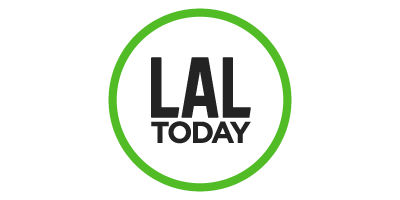Whether you regularly read financial news as part of your daily digest or it’s one of your goals to get more invested in your personal finances, understanding common financial terms (and why they’re important) can help you manage your money well (read: more peace of mind when treating yourself at Nineteen61 or Lakeside Village).
To help you get a better understanding of frequently used financial jargon, we’ll give you a quick primer — and a chance to ask any financial questions of your own. 💬
GAP Insurance
GAP insurance covers drivers if their vehicle is totaled and they owe more than the vehicle is worth. Think: GAP insurance fills that “gap” so that you don’t end up paying out of pocket.
FICO
An acronym for Fair Isaac Corp. (read: the company that came up with the methodology for calculating a credit score), your FICO score is based on several factors, including:
- Payment history
- Length of your credit history
- Your total amount owed
FICO scores range from 300-850. The higher the score, the better the terms you could receive on your next loan or credit card.

Rather than calculating it on your own, you can ask one of Publix Employees Federal Credit Union (PEFCU)'s mortgage experts to estimate projected closing costs when you apply for pre-approval. | Photo by Page Wagner Homes and The Megan Marsh via PEFCU, federally insured by NCUA.
Escrow
Escrow is a legal arrangement in which a third party temporarily holds money or property until a particular condition has been met.
During the homebuying process, the buyer will deposit a specified amount in an escrow account (read: an impartial third party account) that neither party can access until all terms of the purchase contract, i.e. passing an inspection, have been fulfilled + the sale is completed.
An escrow account may also hold money that can be used to pay:
- Homeowners insurance
- Property taxes
- Premiums
Read on for four more financial phrases (think: compound interest, 401k + Roth, and APR) to get familiar with.
Fixed-Rate vs. Variable Rate
A fixed-rate mortgage is a type of loan that has a fixed interest rate. Read: If interest rates rise, homeowners with a fixed-rate mortgage don’t have to worry about their payments rising.
However, if interest rates fall, the homeowner could be locked into a more expensive mortgage.
A variable interest rate is an interest rate on a loan that fluctuates over time because it is based on an underlying benchmark interest rate (that depends on the type of loan) that changes periodically. If the interest rate declines, the borrower’s interest payments will also go down.
APR vs. APY
Both APR + APY/EAR:
- Measure interest
- Can be useful when deciding on the credit or deposit account that’s right for you
APR measures the interest charged, while APY/EAR measures the interest earned.
APR is usually associated with credit accounts. The lower the APR on your account, the lower your overall cost of borrowing might be.
APY is usually associated with deposit accounts. The higher the APY on your account, the higher your earnings may be.
Retirements Account (401k + Roth)
Both 401(k)s and Roth IRAs allow your savings to grow tax-free.
However, these retirement savings accounts differ in:
- Tax treatment
- Investment options
- Employer contributions
Contributions to a 401(k) are deposited before your income taxes are deducted from your paycheck. Once you’re retired, any withdrawals are taxed at your current income tax rate.
With a Roth IRA, there is no tax savings or deduction for your contributions, and bonus: they can be withdrawn tax-free once you’ve reached retirement.
Compound Interest
To put it plainly, compound interest is interest you earn on interest.
For example, when you add money to a savings account, you receive interest based on the amount that you deposited. So, if you deposit $5,000 in an account that pays 1% annual interest, you’d earn $50 in interest after one year.*
Question
What questions about personal finance do you want answered? Let us know, and we’ll pass your questions along to the experts for answers.











